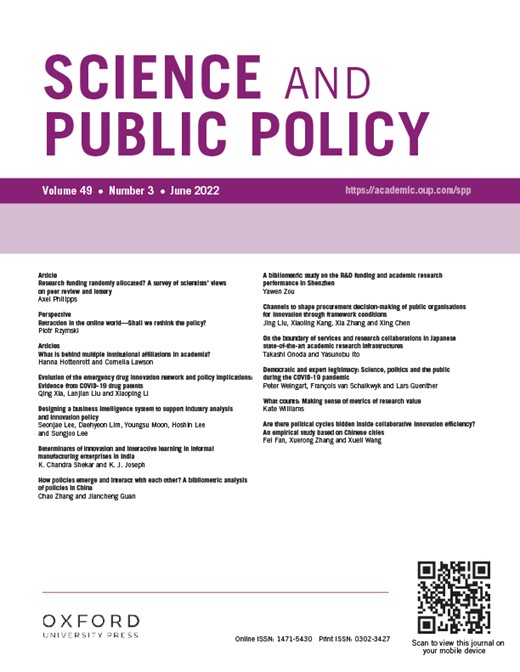-
Views
-
Cite
Cite
Piotr Rzymski, Retraction in the online world—Shall we rethink the policy?, Science and Public Policy, Volume 49, Issue 3, June 2022, Pages 378–381, https://doi.org/10.1093/scipol/scab085
Close - Share Icon Share
Abstract
In case of scientific misconduct, the papers can be retracted at the request of the journal’s editors and/or authors. However, the retracted articles continue to be fully available through online resources, including journals websites. This paper argues that a classical retraction is insufficient to mitigate the adverse effect some retracted papers continue to have on critical issues, e.g. public health. The more strict approach, ‘Hard Retraction’, is presented for consideration. Its implementation would lead to (1) complete deletion of the full text of the retracted paper, (2) substitution of the original abstract with a detailed retraction notice, (3) removal of the paper from the citation databases, (4) deposition of the retracted paper in the dedicated repository accessible for registered members. The benefits and risks of such an approach are discussed. Nevertheless, it should only be reserved for cases of fraud or grave errors with broad impacts.



